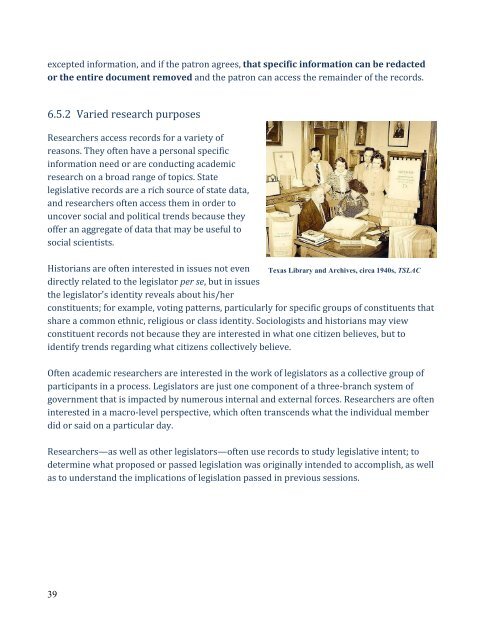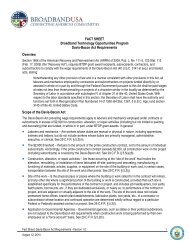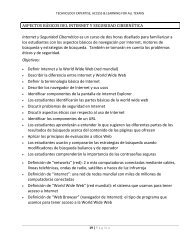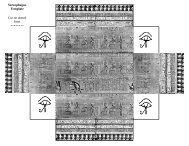Begin with the End in Mind: A Records Management & Archives ...
Begin with the End in Mind: A Records Management & Archives ...
Begin with the End in Mind: A Records Management & Archives ...
You also want an ePaper? Increase the reach of your titles
YUMPU automatically turns print PDFs into web optimized ePapers that Google loves.
excepted <strong>in</strong>formation, and if <strong>the</strong> patron agrees, that specific <strong>in</strong>formation can be redacted<br />
or <strong>the</strong> entire document removed and <strong>the</strong> patron can access <strong>the</strong> rema<strong>in</strong>der of <strong>the</strong> records.<br />
6.5.2 Varied research purposes<br />
Researchers access records for a variety of<br />
reasons. They often have a personal specific<br />
<strong>in</strong>formation need or are conduct<strong>in</strong>g academic<br />
research on a broad range of topics. State<br />
legislative records are a rich source of state data,<br />
and researchers often access <strong>the</strong>m <strong>in</strong> order to<br />
uncover social and political trends because <strong>the</strong>y<br />
offer an aggregate of data that may be useful to<br />
social scientists.<br />
Historians are often <strong>in</strong>terested <strong>in</strong> issues not even Texas Library and <strong>Archives</strong>, circa 1940s, TSLAC<br />
directly related to <strong>the</strong> legislator per se, but <strong>in</strong> issues<br />
<strong>the</strong> legislator's identity reveals about his/her<br />
constituents; for example, vot<strong>in</strong>g patterns, particularly for specific groups of constituents that<br />
share a common ethnic, religious or class identity. Sociologists and historians may view<br />
constituent records not because <strong>the</strong>y are <strong>in</strong>terested <strong>in</strong> what one citizen believes, but to<br />
identify trends regard<strong>in</strong>g what citizens collectively believe.<br />
Often academic researchers are <strong>in</strong>terested <strong>in</strong> <strong>the</strong> work of legislators as a collective group of<br />
participants <strong>in</strong> a process. Legislators are just one component of a three-branch system of<br />
government that is impacted by numerous <strong>in</strong>ternal and external forces. Researchers are often<br />
<strong>in</strong>terested <strong>in</strong> a macro-level perspective, which often transcends what <strong>the</strong> <strong>in</strong>dividual member<br />
did or said on a particular day.<br />
Researchers—as well as o<strong>the</strong>r legislators—often use records to study legislative <strong>in</strong>tent; to<br />
determ<strong>in</strong>e what proposed or passed legislation was orig<strong>in</strong>ally <strong>in</strong>tended to accomplish, as well<br />
as to understand <strong>the</strong> implications of legislation passed <strong>in</strong> previous sessions.<br />
39






![Harry Potter [pdf]](https://img.yumpu.com/27329912/1/190x245/harry-potter-pdf.jpg?quality=85)
![Aplicaciones del Programa de Libros que Hablan [pdf] - Texas State ...](https://img.yumpu.com/27329907/1/190x245/aplicaciones-del-programa-de-libros-que-hablan-pdf-texas-state-.jpg?quality=85)








